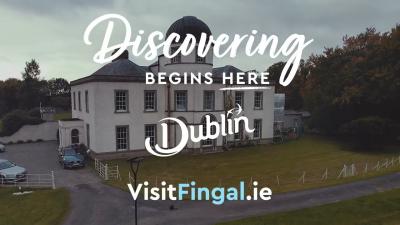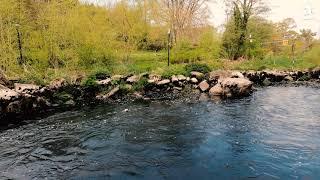The Liffey Valley Trail
Liffey Valley Trail
Visit the Liffey Valley Trail where you can Explore Waterways, Walks, Park, Historic Properties, Fun Activities and Great Shopping
Download the trail here: The Liffey Valley Trail
1. Castleknock Village
Located just inside Dublin city’s M50 motorway ring road, beautifully blends the old with the new, the urban with the rural. The magnificent amenity of The Phoenix Park is on its’ doorstep and is home to the historic Farmleigh House. Castleknock Castle, another feature of the area, is a ruined Norman castle which was established by the Norman knight, Hugh Tyrell, who was later appointed as the first Baron of Castleknock. This Dublin suburb is home to many well known GAA, soccer and athletics clubs along with Castleknock, Elmgreen and Luttrellstown Golf Clubs.
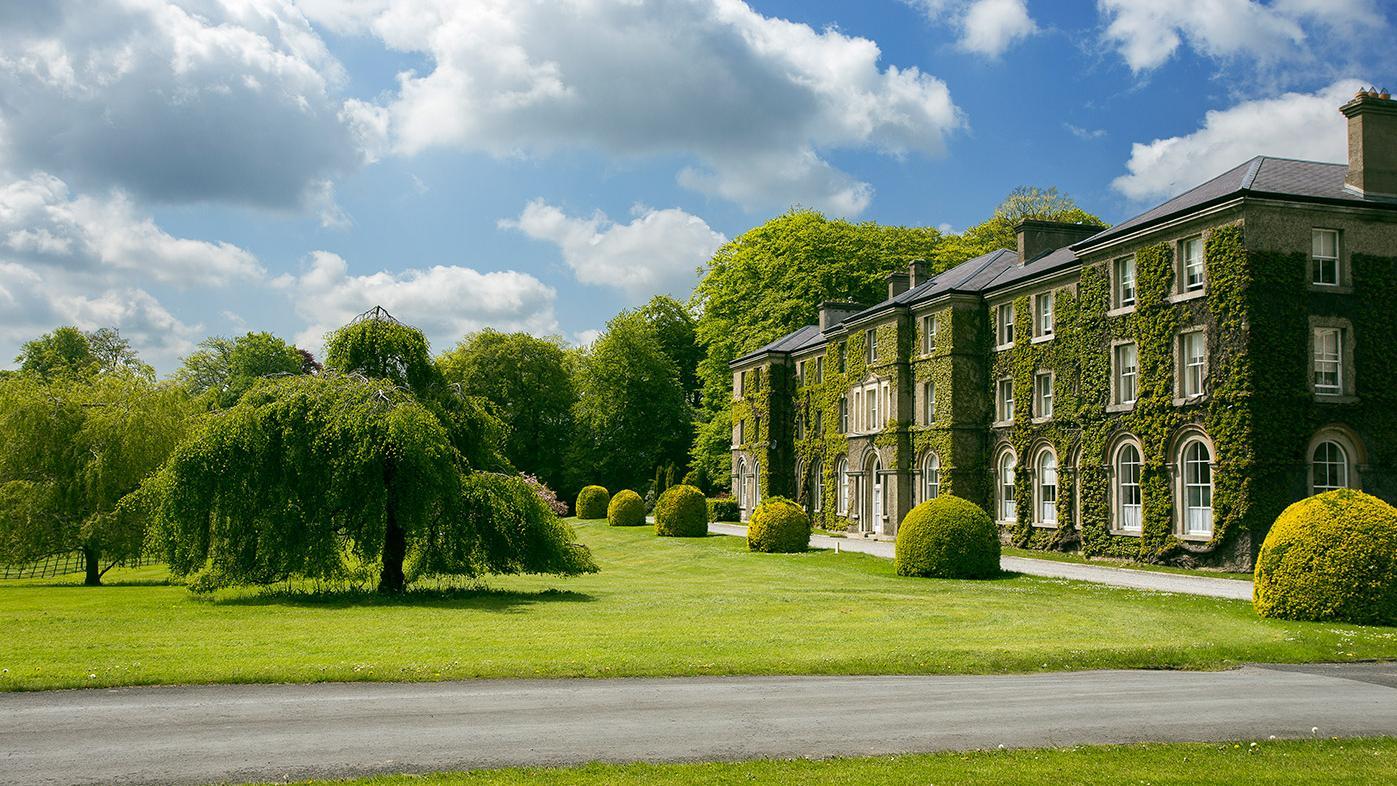
2. St. Brigid’s Church
The foundation stone of the present Church was laid on 20th October 1803 and, with the help of a loan of £1,000 in 1809 from the Board of First Fruits, was completed in 1810. A spire was added to the tower in 1864 but was struck by lightning in 1957 and had to be removed. The tower houses two bells. The smaller was cast in Dublin in 1855, while the larger was part of a ring of six in St. Werburgh’s Church in Dublin City and was cast in Gloucester in 1747. The bell came to St. Brigid’s in 1855. The Brook Window, by Harry Clarke, in the north wall of St. Brigid’s Church, depicts St. Hubert, St. Luke and St. George. Well worth viewing, the work was executed in about 1928 and is one of the finest examples of his work.
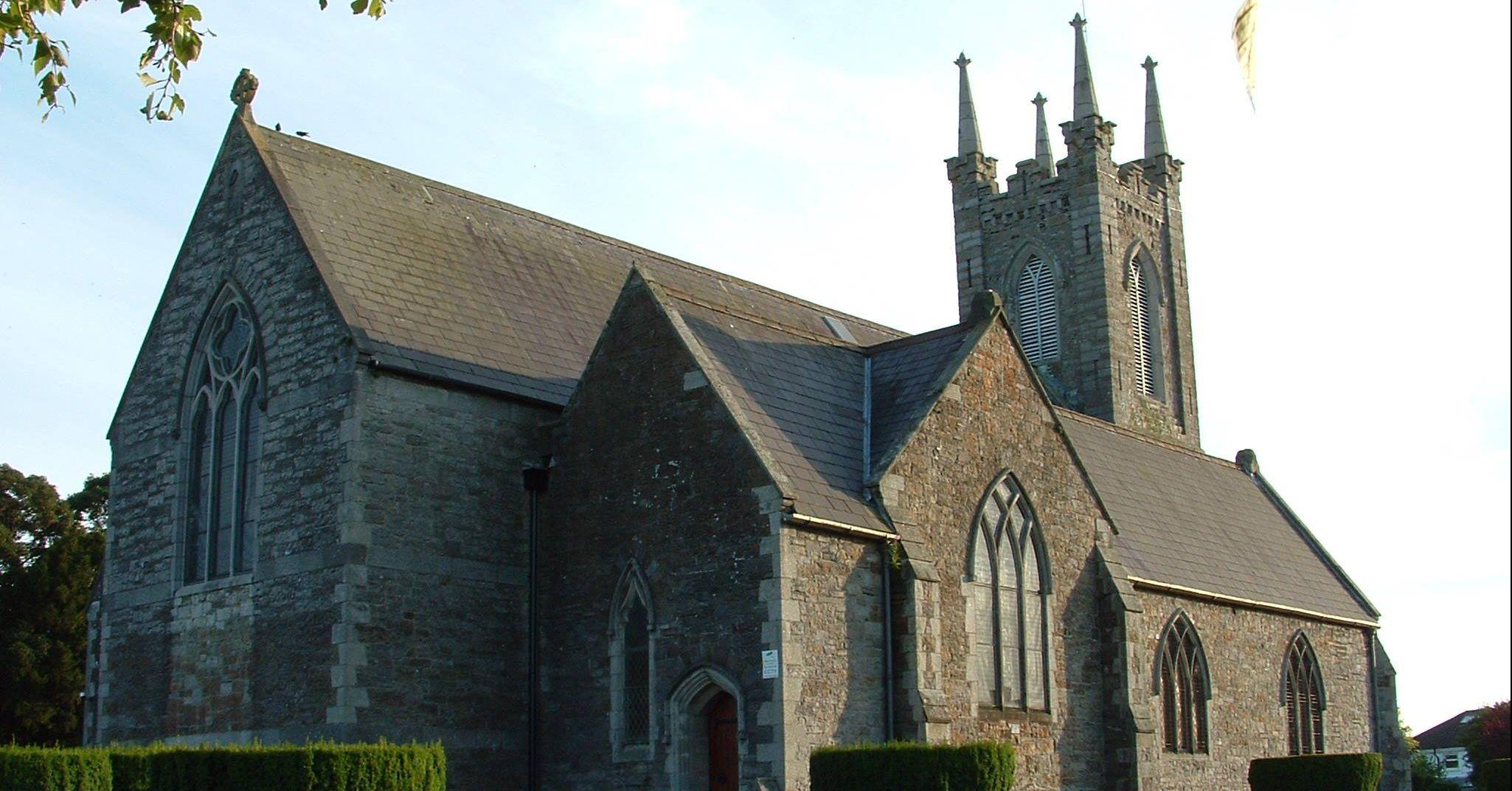
3. Sandpit Cottages
The cottages were built at the end of the 19th century by the famous Guinness Brewery for the employees of their Farmleigh estate. The buildings are typical of the type of country cottages common to Irish villages.
4. Guinness Bridge
The 52m box truss bridge was built between 1872 and 1880 by Edward Cecil Guinness. It links the south side fields of Waterstown Park in Palmerstown to a tunnel connecting to the Farmleigh estate in the Phoenix Park.
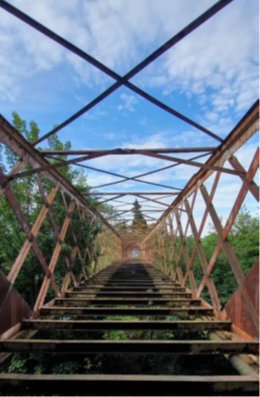
5. The Phoenix Park
The Phoenix Park is the largest enclosed public park in any capital city in Europe. It was originally formed as a royal hunting Park in the 1660s and opened to the public in 1747. A large herd of fallow deer still remain to this day. The Park is also home to Dublin Zoo, Áras an Uachtaráin, and Victorian flower gardens. Both passive and active recreational pursuits may be viewed or pursued such as walking, running, polo, cricket, hurling, and many more. The Castleknock Gate to the park is open 24 hours.

6. Farmleigh House
The 32 hectare Farmleigh estate was bought by Arthur E. Guinness, the brewing tycoon, in 1873. Originally a small Georgian house Farmleigh was refurbished and extended a number of times, first between 1881-84, then in 1896 when the Ballroom wing was added, and again in 1901 with the addition of an adjoining Conservatory.
The house bears an eclectic interior design ranging from the classical style to Jacobean, Louis XV, Louis XVI and Georgian. The estate remained with the Guinness family until 1999 when it was purchased by the Irish Government and restored for the purposes of providing accommodation for visiting dignitaries, for high level Government meetings, and for public enjoyment. Along with the house the Sunken Garden, the Walled Garden, the famous Clock Tower and the Lake are well worth the visit.
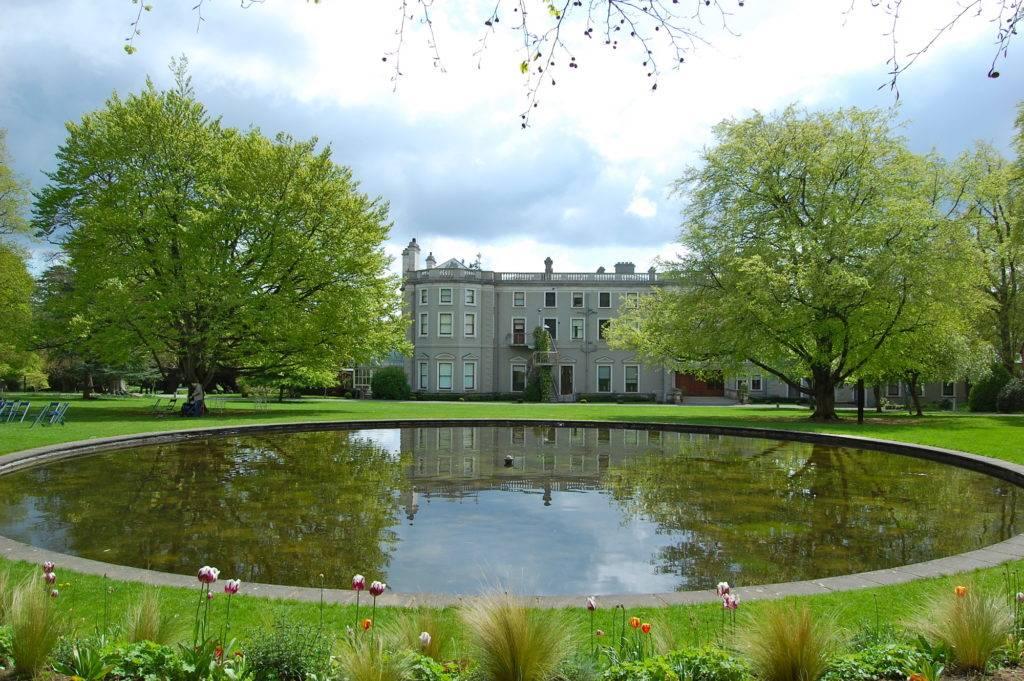
7. St. Mary’s Church, Clonsilla
Set in a graveyard the present church was built in 1845 with the tower added in 1850. The bell in the tower is dated 1747 and was cast in Gloucester. It was a gift from St. Werburgh’s Church, where it formed part of a ring of six bells. In 1907 Sir Arthur Vickers, the Ulster King at Arms, following the advice of a medium he had consulted, came to Clonsilla to search for the stolen insignia of Saint Patrick (the Irish State Crown Jewels). The visit ended in failure. Rumours still persist that the jewels are hidden somewhere in the grounds. A stained glass window by Evie Hone, a world-renowned stained glass artist, was installed in the church in 1935. It depicts St. Fiacre whose feast day is 1st September and who is the patron saint of gardeners and cab-drivers.
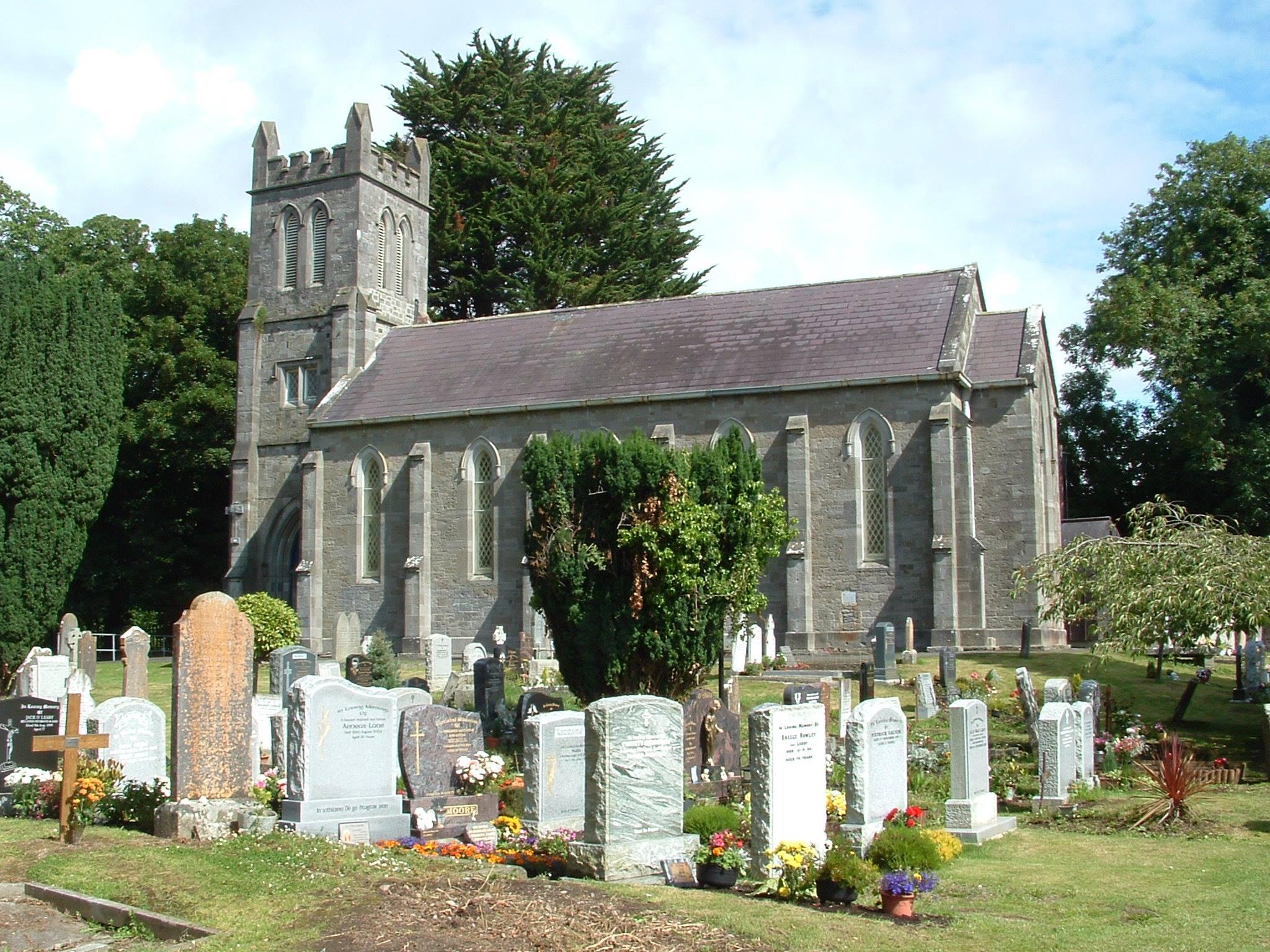
8. Clonsilla
Clonsilla used to be a small village in the inner western part of County Dublin, but it is now a large residential suburban area, with Ongar and other localities developing their own identities.
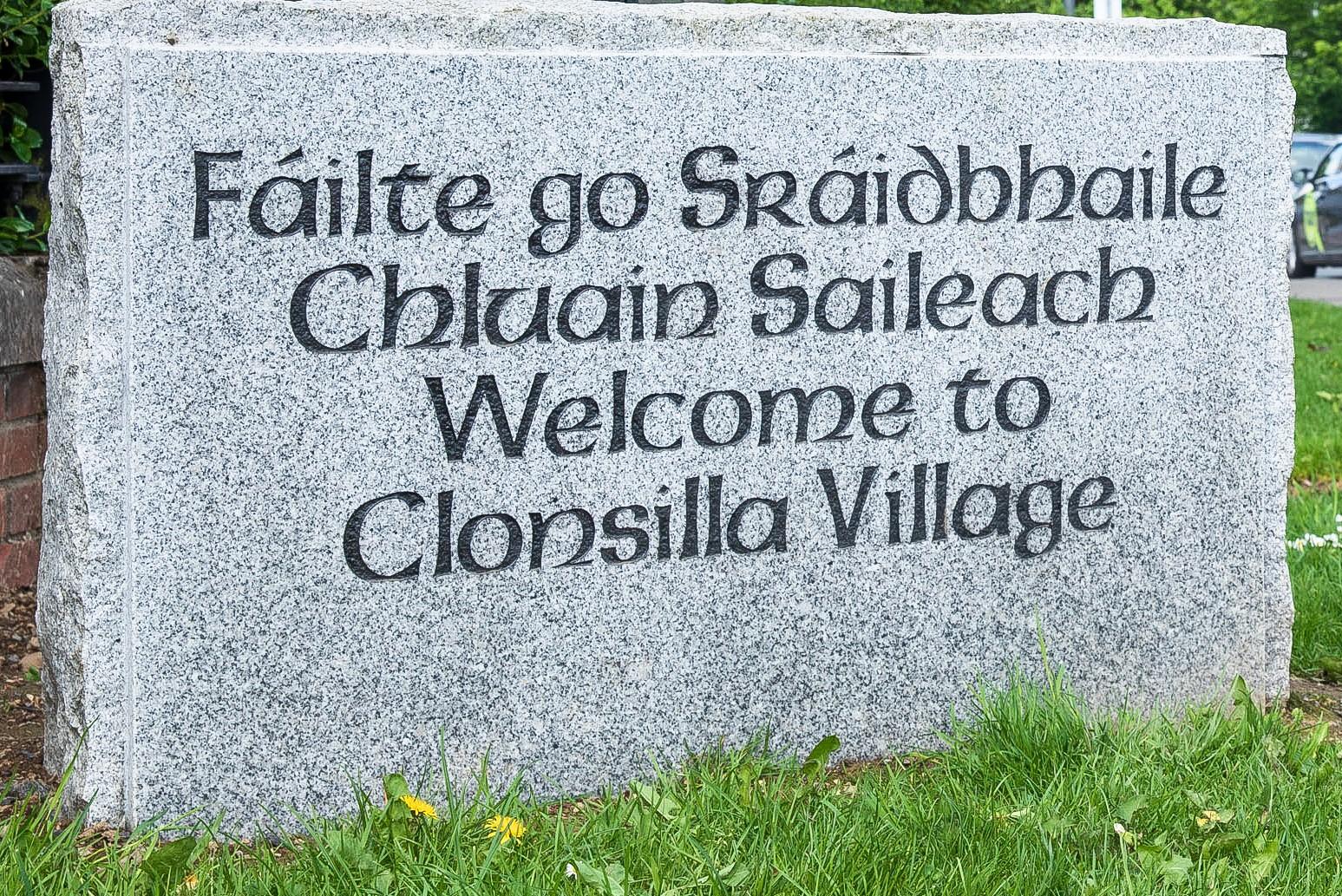
9. Clonsilla Station Signal Box
Iarnrod Éireann has preserved this beautiful signal and control box which is part of Clonsilla Railway Station. The signal box is composed of a glazed timber-clad office raised over a red brick base. From this picturesque structure overlooking the rail line, the level crossing gates and the signals of yesteryear were manually controlled and operated.
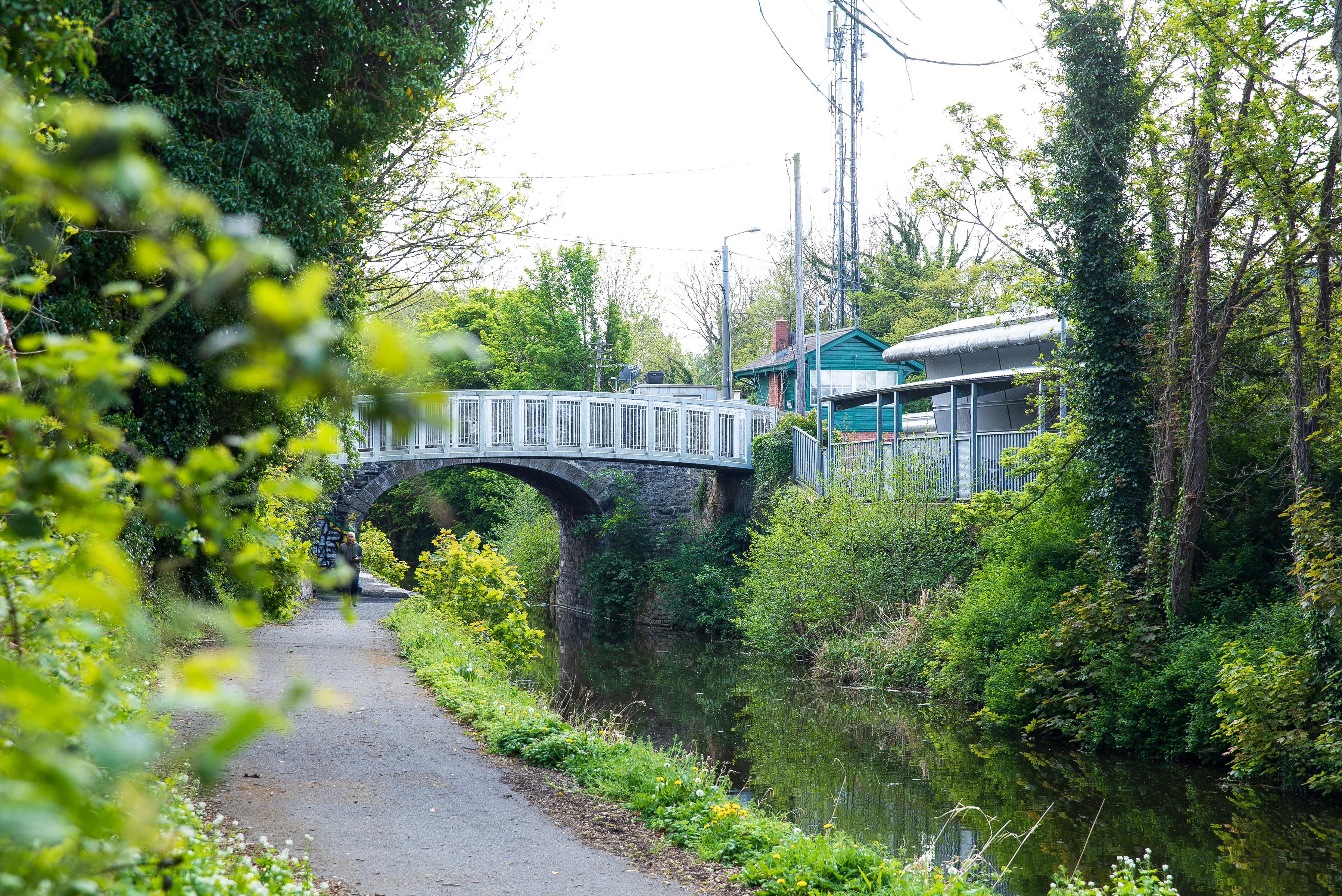
10. The Strawberry Beds
The Liffey where it forms the southwest boundary of Fingal near Lucan has a wildlife area of great beauty. Here also are the Strawberry Beds, so called as the land was used for a long time for the cultivation of strawberries, has largely been untouched by modern development and provides enchanting and picturesque views. The area is now classified as a Special Amenity Area.
11. Luttrellstown Castle
Set in a magnificent 227 hectare (560-acre) estate Luttrellstown Castle is a stunning period residence which dates from the early 15th century. Many generations of the Luttrell family lived at the castle until it was sold to Arthur E Guinness in 1930, who bought the estate for his daughter. The castle is now operated as a small luxury hotel and golf club.
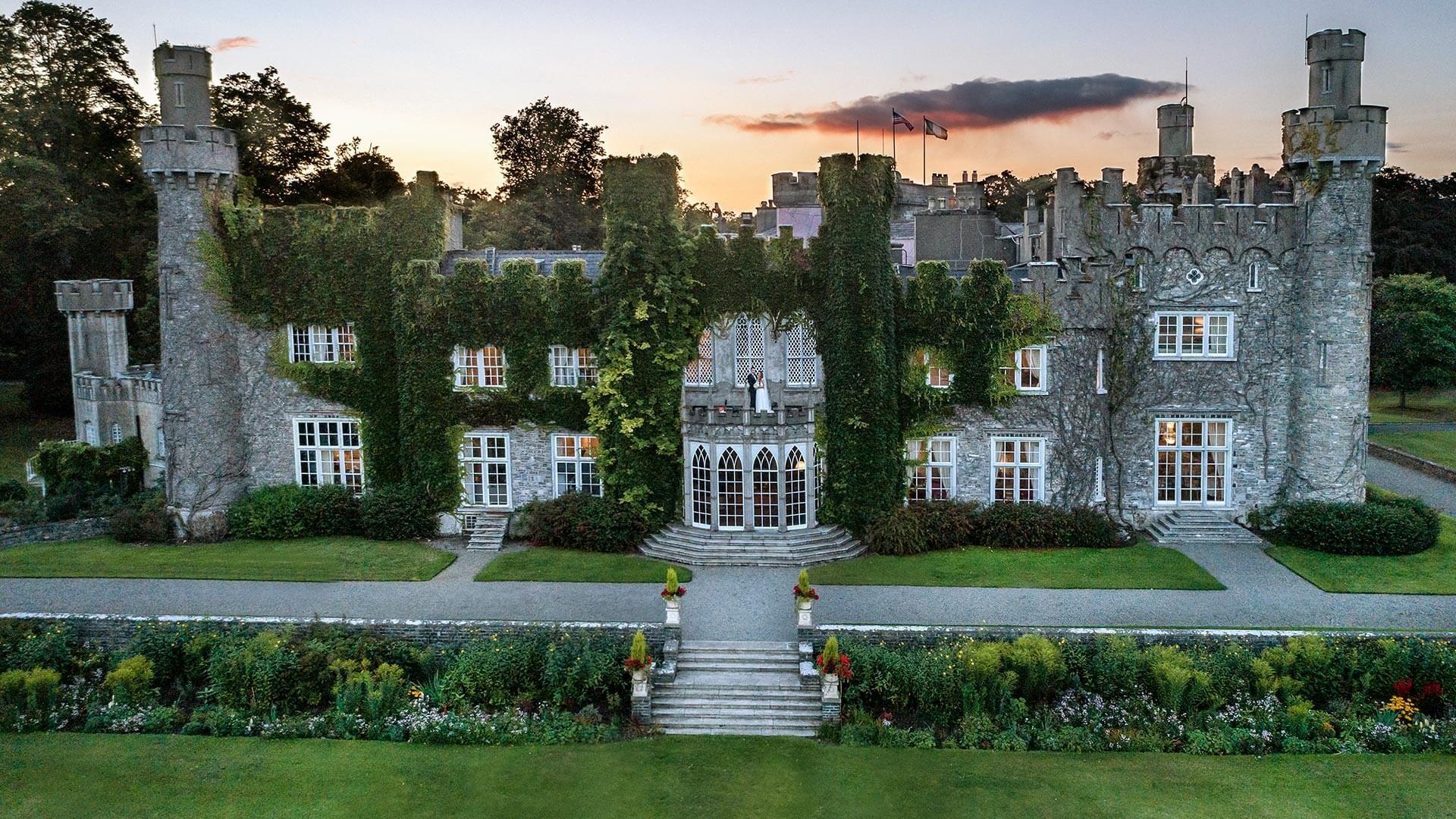
12. St. Catherine’s Park
The demesne of St. Catherine has had numerous owners since it was first established in 1219. In 1792 St. Catherine’s was purchased by David la Touché who completely rebuilt and refurnished the house with ‘curious works of paintings, drawings and sculpture which he had collected on his travels’ (Dalton 1838). However the house was burnt to the ground at the end of the 19th century. Also here are two wells dedicated to St. Catherine, the water is used as a cure for sore eyes.
See full details on the St. Catherine's Park
St Catherine's Park
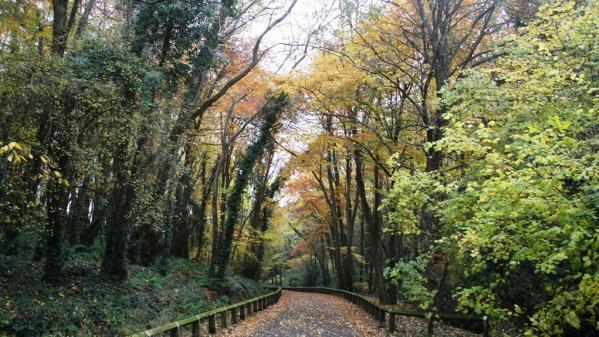
13. Shackleton Mills
Shackleton Mills, located on the River Liffey, were owned by the family of Sir Ernest Shackleton, the Irish Antarctic Explorer. The mills were formerly known as the ‘Devil’s Mills’, lore had it that the mill had been built by the devil in one night as a result of a wager with the owner of Luttrellstown Castle. It’s the only surviving mill of its type in Ireland with working German machinery using the roller milling technology of the 1930s.
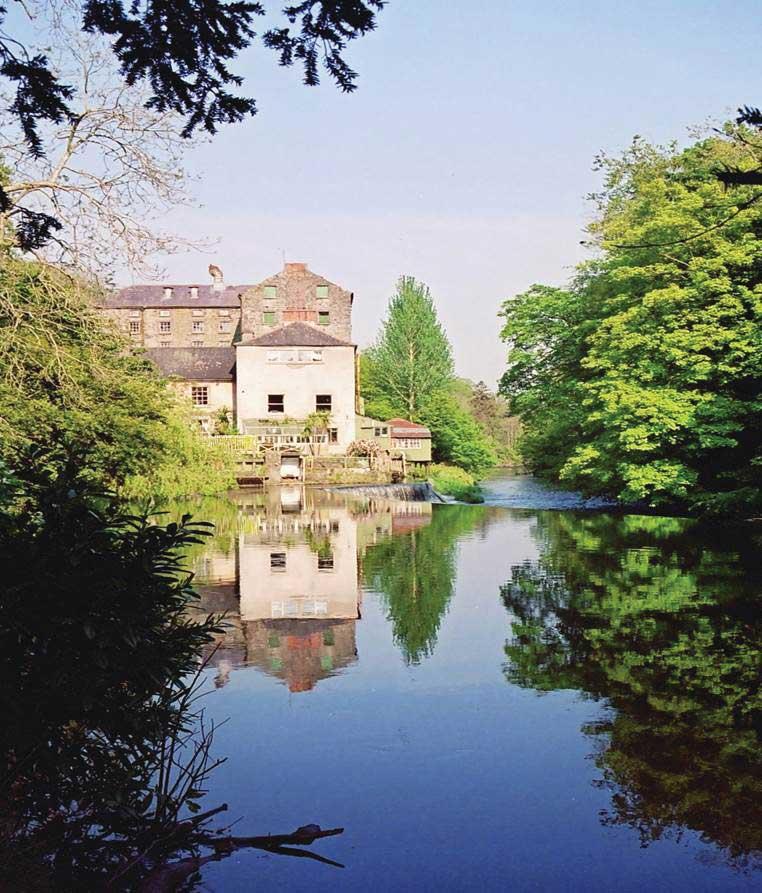
14. Shackleton Gardens
The Gardens, which are inside a 1.5-acre walled garden, are home to an important collection of herbaceous perennials, grown in large herbaceous borders. During the 1980s, the gardens were included in The Good Gardens Guide and were awarded two stars. This is the highest accolade awarded by the Guide and reserved for the very best gardens in Britain and Ireland.
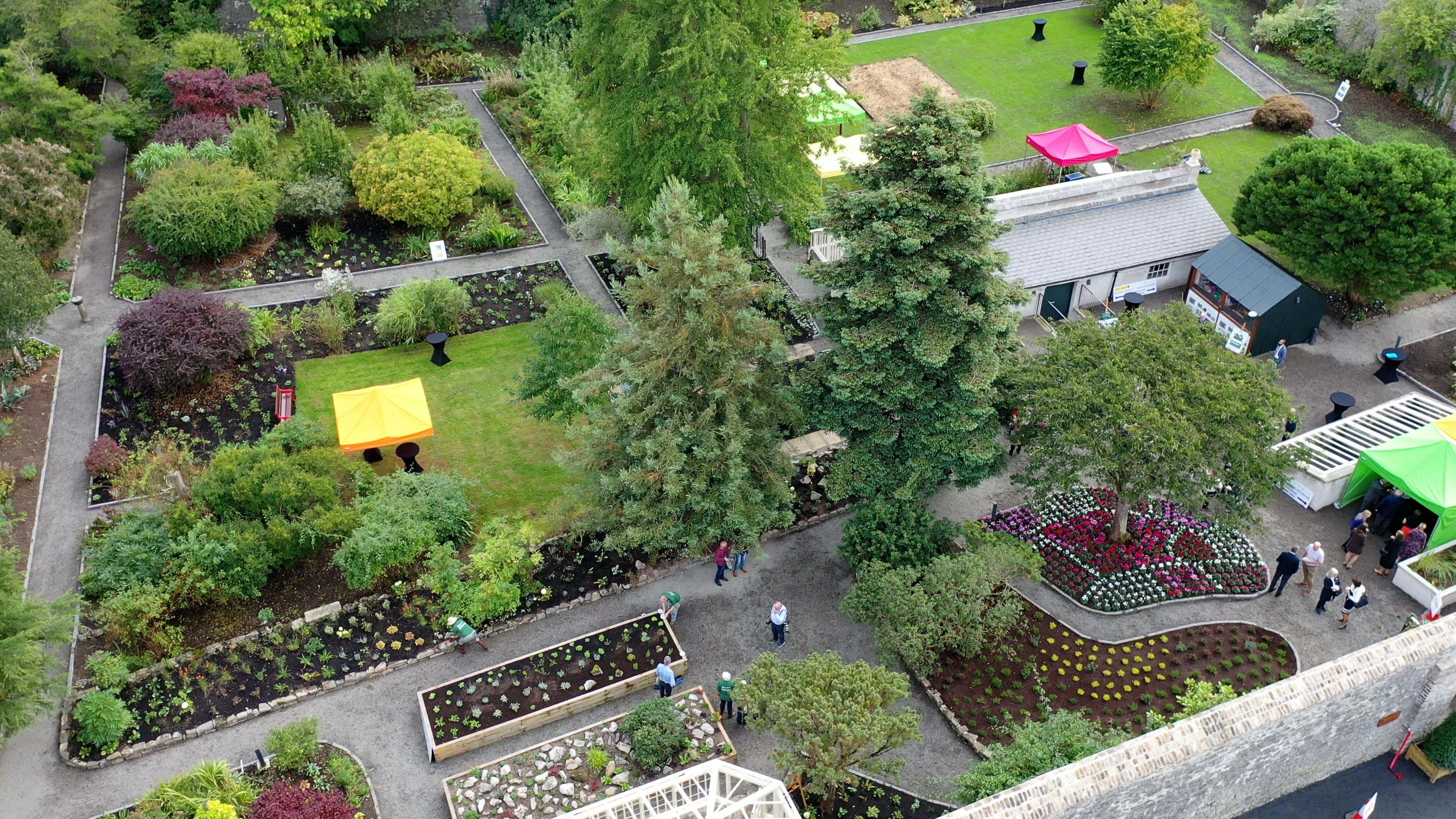
15. Waterways
Dublin 15 boasts three waterways, the rivers Liffey and Tolka and the Royal Canal. The Liffey Valley where it passes through Dublin 15 is beautifully contained between steep wooded hills around the famous Strawberry Beds. The landscape of the 8km linear park at the Tolka River Valley varies from pasture land and woodland to wetlands providing for a wide variety of fauna. The Royal Canal has been restored and developed for a range of recreational activities and is navigable between Dublin and Co. Longford and will ultimately become a Greenway from Dublin to Galway.
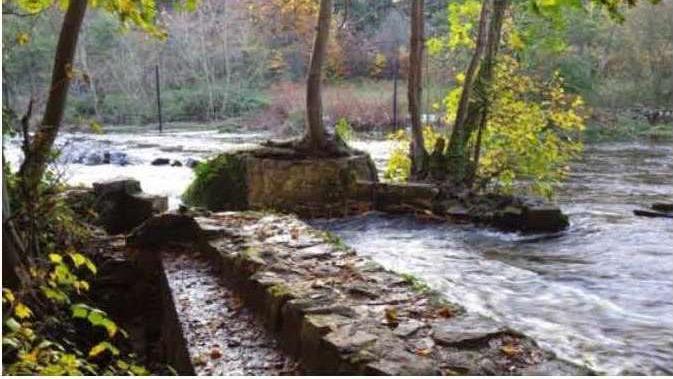
16. Tolka Valley Regional Park
The pasture lands and playing fields of the upper section of this 300-acre park give way to woodlands, undulating fields and wetlands, providing natural habitats for a wide range of fauna. The river valley is rich in plant and animal life and a haven for biodiversity within the city.
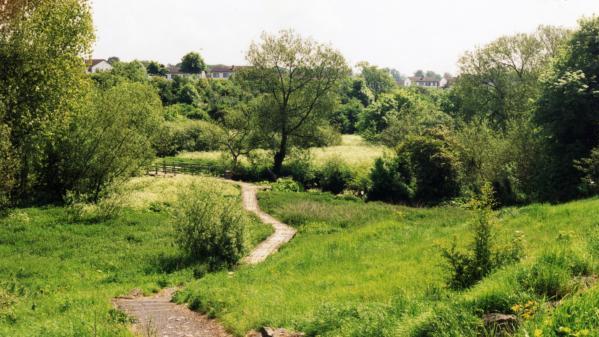
17. Aquazone
A visit to AquaZone, Ireland’s favourite waterpark, is the perfect family day out. This indoor waterpark, at the Sport Ireland National Aquatic Centre, is home to eight rides, slides and experiences, which cater for all ages. With ample free parking and a fantastic restaurant, Aquazone is the perfect family activity no matter what the weather.
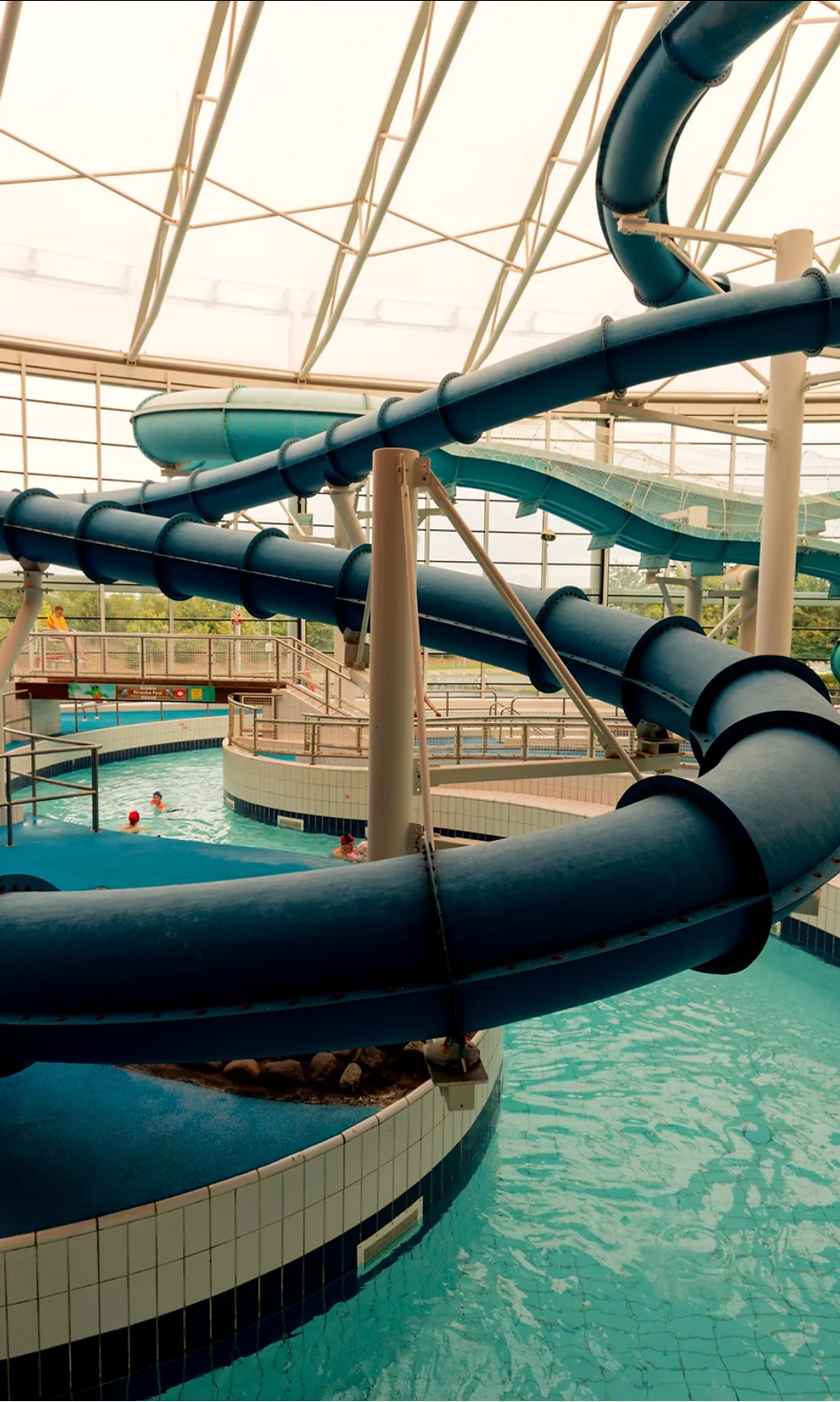
18. Blanchardstown Village
Blanchardstown is the most populous and urban area of Fingal. It’s a thriving village with a noteworthy New England style church of St. Brigid.
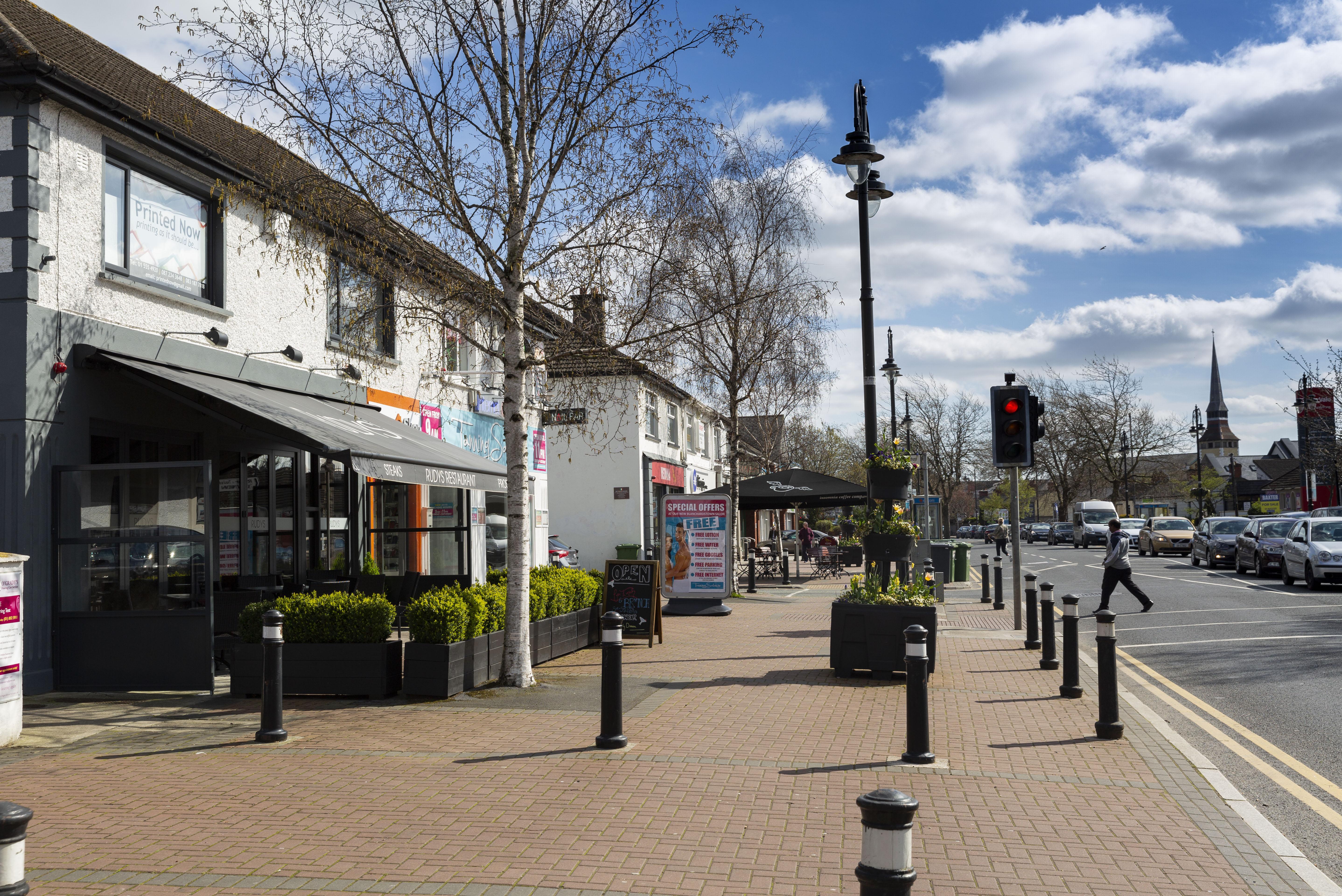
19. Blanchardstown Centre
www.blanchardstowncentre.ie Blanchardstown Centre is a Mecca for shoppers and attracts visitors from the four corners of Ireland. It’s Ireland’s largest and most successful shopping, leisure and retail park destination. And it’s easy to see why - with over 180 leading high street retailers, numerous cafés and restaurants, together with an Odeon 9-screen cinema, Library and Draíocht Theatre – Blanchardstown Centre is an excellent destination for all the family.

20. The Sport Ireland Campus
The Sport Ireland Campus is the home of Irish Sport, not just for our Athletes, but for the community. The campus is home to world-class indoor and outdoor facilities which host local, national and international events. Sport Ireland is the authority tasked with the development of sport in Ireland. This includes participation in sport, high performance sport, anti-doping, coaching and the development of the Sport Ireland National Sports Campus.

22. Millennium Park
The park provides a brilliant amenity for families and the whole community in the area. The park includes a playground suitable for kids of all ages. Located conveniently near Clonsilla and Coolmine train stations as well as being serviced by several bus routes, the park is easy to reach and visit.
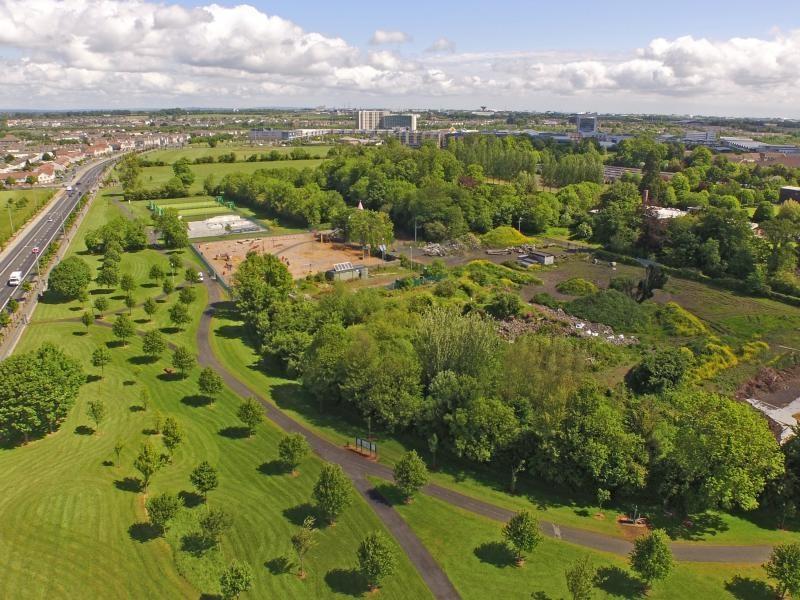
23. Mulhuddart
Mulhuddart was once a quiet village close to the city, but is now a busy suburb of Dublin situated in the northwest of the city
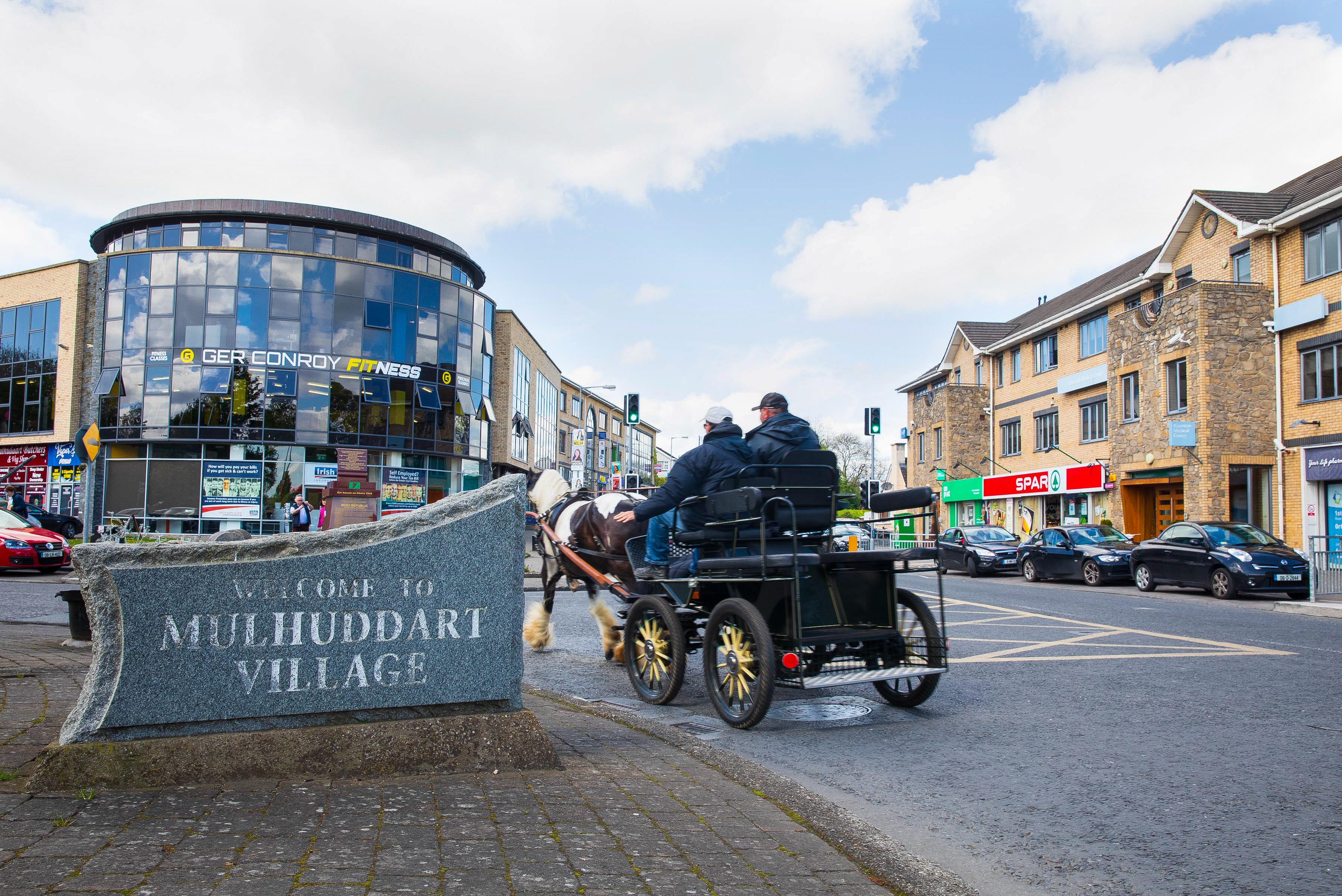
24. St. Thomas’ Mulhuddart.
In the 15th Century a Church on the site became famous because of its association with the Guild of the Blessed Virgin Mary. This religious fraternity of prominent local people was founded by Act of Parliament (23rd of Henry VI). The Church of that time, still in ruins, is adjacent to the new cemetery at Mulhuddart, opposite the well that gives the locality its name: Ladyswell. The newer church was built in 1871 and was designed by the well-known firm of Welland and Gillespie.
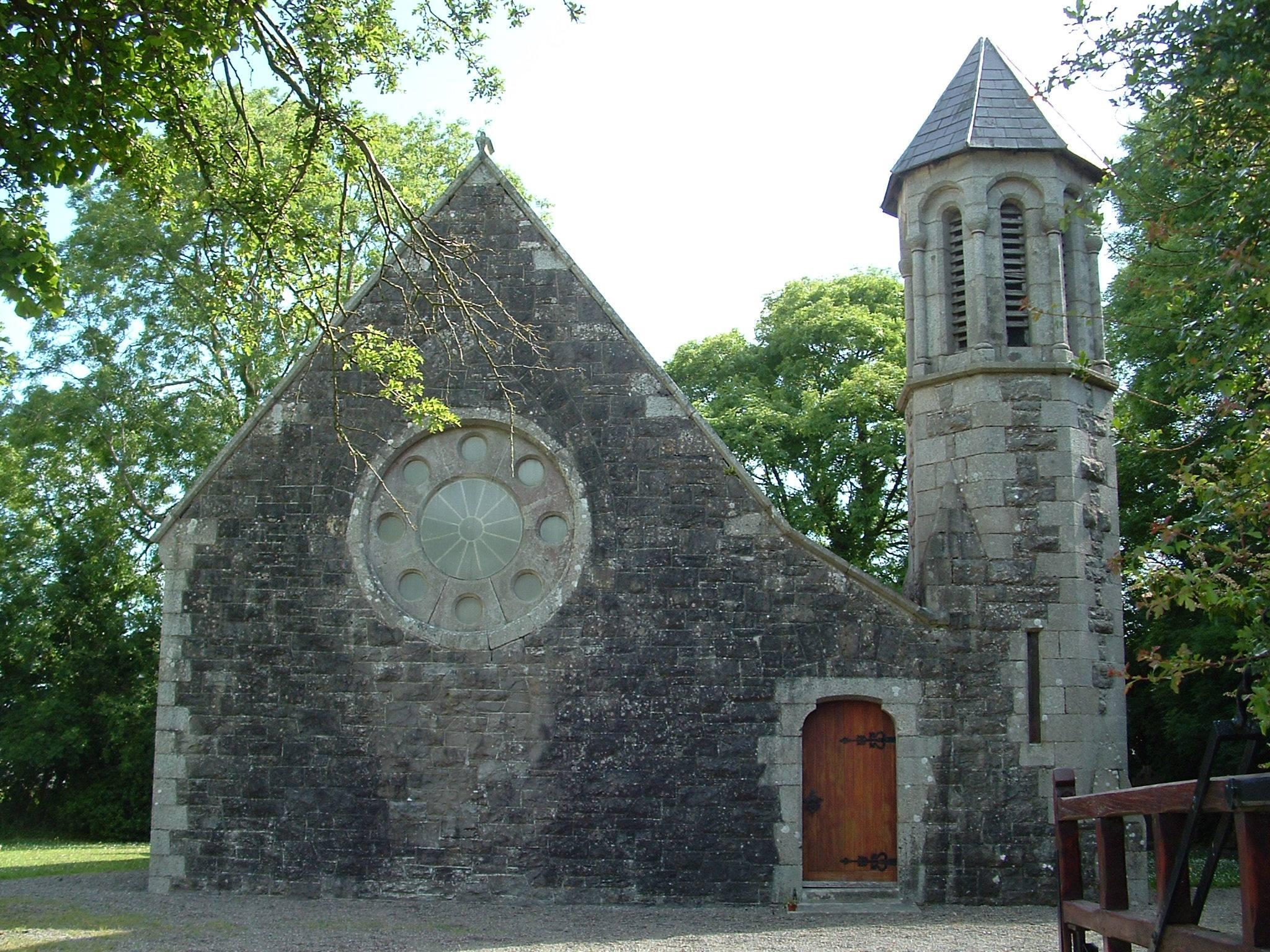
25. National Famine Way
This walk begins at the Memorial Wall in Strokestown Park in Roscommon and travels 165k along the canal to Dublin. The way ends at the iconic famine statues by the Jeanie Johnston, Custom House Quay, where 1,490 who travelled the route to escape the famine boarded a steamship. The way travels through Dublin 15 with marketers, children’s bronze cast shoes at Clonsilla, 12th and 10th Locks.
26. Draíocht
Draíocht is an acclaimed arts venue which programmes local, national and international shows from all performance disciplines. The multi-purpose venue is used for a broad range of activities including dance, drama, multi-media arts activities and more.
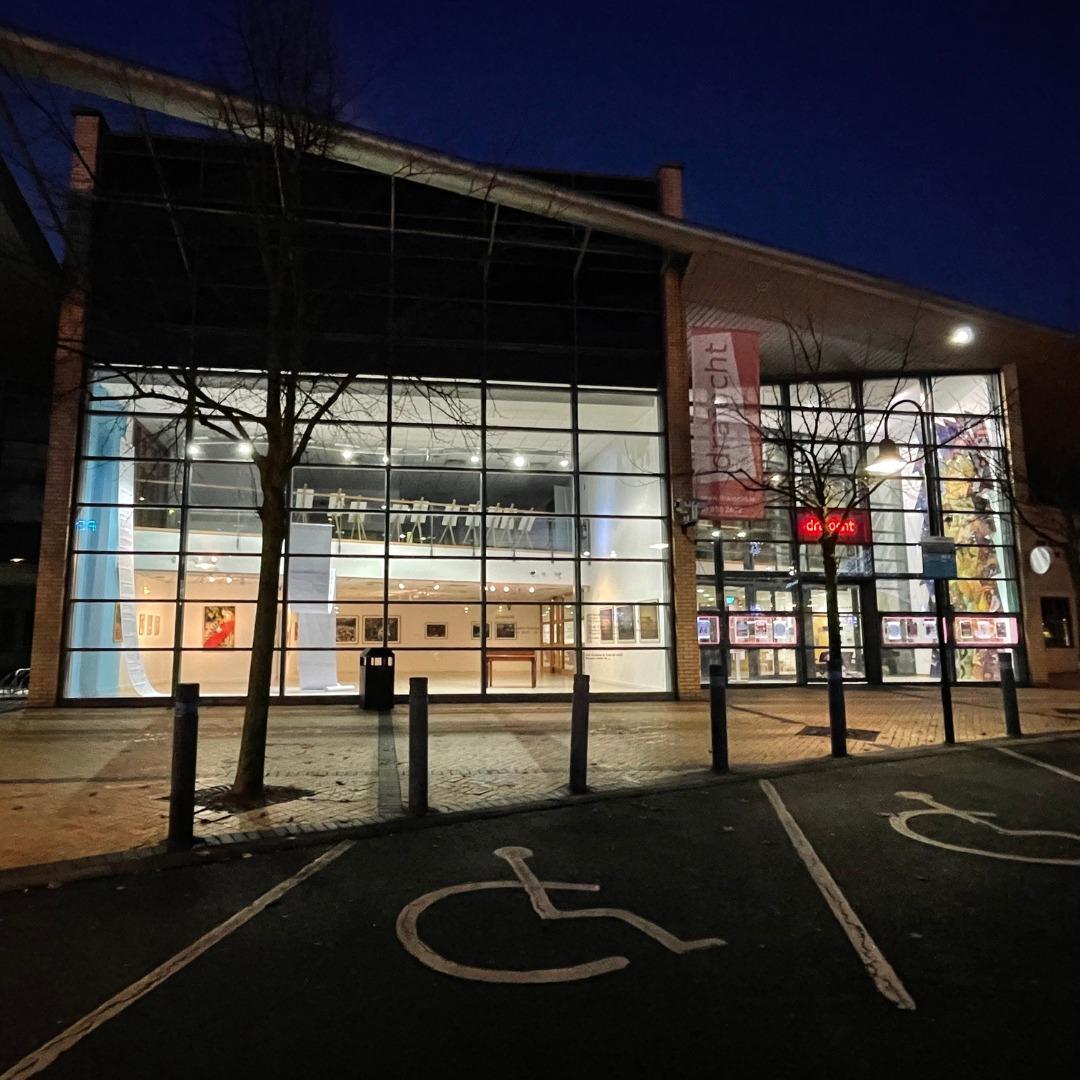
27. The Church of Mary
Up to the hill from what was once the centre of Mulhuddart village stand the ruins of an old church and graveyard. The Church of Mary, as it was known, dates from medieval times and was still in use in the late sixteenth century. It has a close connection to a nearby holy well which was a centre of local religious devotion for centuries.
28. The holy well at Ladyswell
This holy well is a natural spring now enclosed in a vaulted structure, with two inscribed stone finials on the roof. There are supposed to be nine cures in the water.
29. Dunsink Observatory
Ireland’s oldest scientific institution, Dunsink Observatory was built in 1783 and has for over 200 years provided Dublin with information on the progress of astronomy. Dunsink Observatory is home of the Astronomy section of the School of Cosmic Physics. Sir William Hamilton, the discoverer of quaternion mathematics and eminent 19th Century mathematician and physicist
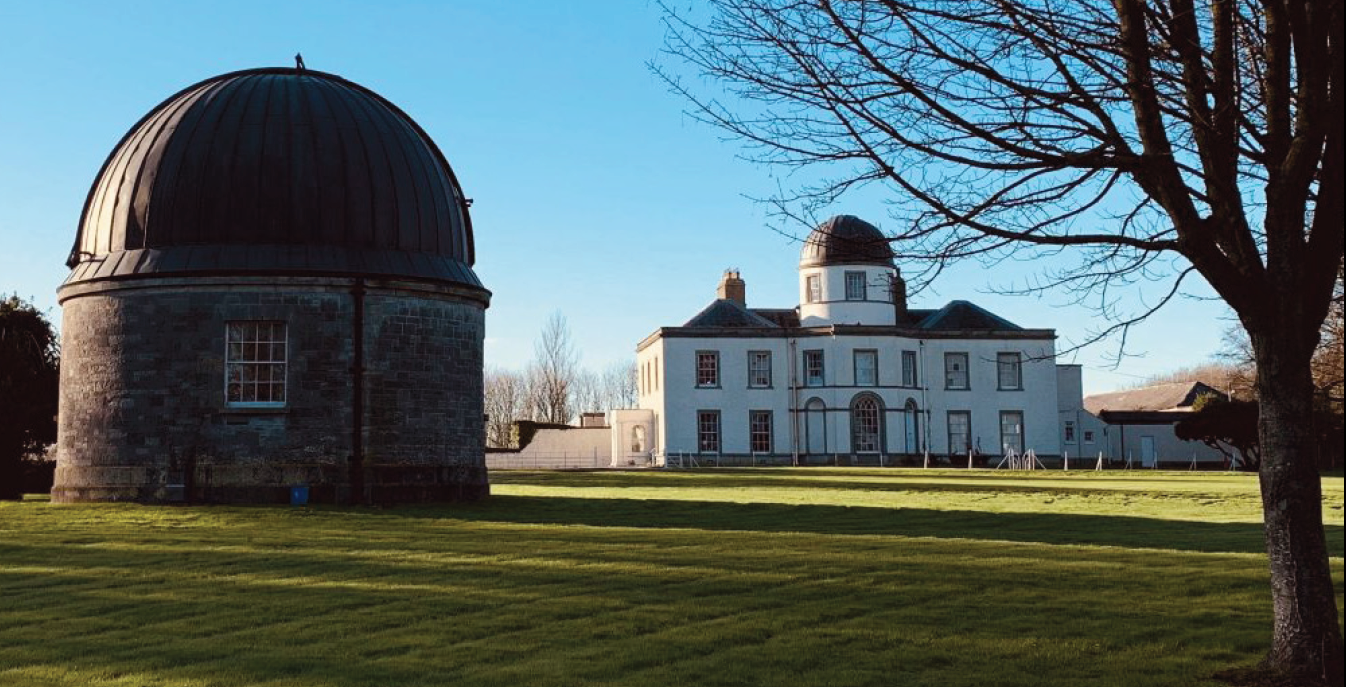
Download the Liffey Valley Trail Here.

